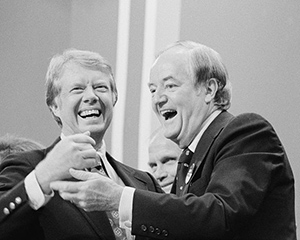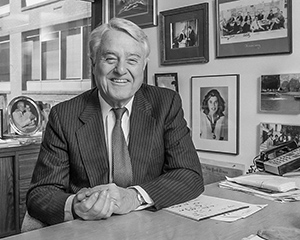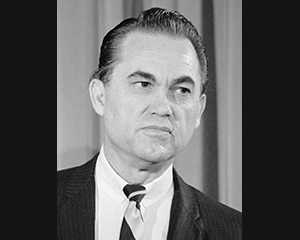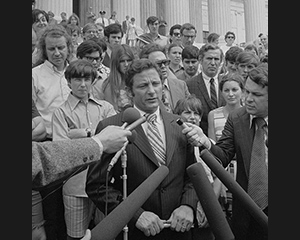Announcement
Republican Candidates
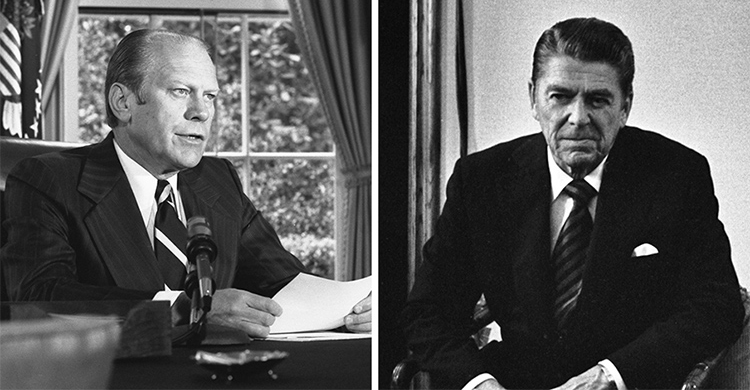
Looming large over Ford's candidacy was the former two-term governor of California, Ronald Reagan. A gifted orator, Reagan had contended for the Republican nomination in 1968. Motivated by his displeasure with Nixon and Ford's foreign policy, domestic issues, and Supreme Court rulings, Reagan reasoned that Ford's caretaker status placed him, not Ford, next in line.
President and Mrs. Ford dined with Ronald and Nancy Reagan in late March 1975. Mrs. Ford later wrote that both she and her husband left knowing Reagan would run. Still, advisors later admitted that the White House underestimated Reagan's candidacy as Ford brushed aside Reagan's rhetoric, which he felt offered unrealistic solutions to complex problems.
Though the two shared conservative instincts, Reagan cast Ford as an establishment Republican. The President argued that Reagan was too far to the right for the general electorate, even as he had twice offered Reagan positions in his Cabinet in 1975 and would allow the moderate Vice President Rockefeller to be pushed off the campaign ticket.
Ronald Reagan announced his candidacy on November 20. Ford's team hoped early primary wins would knock Reagan out of the race by March. Instead, the battle would extend to the Republican National Convention in August. Looking back on Reagan's challenge, Ford's Chief of Staff Richard Cheney later confessed, "We had a lot to learn in the White House."
